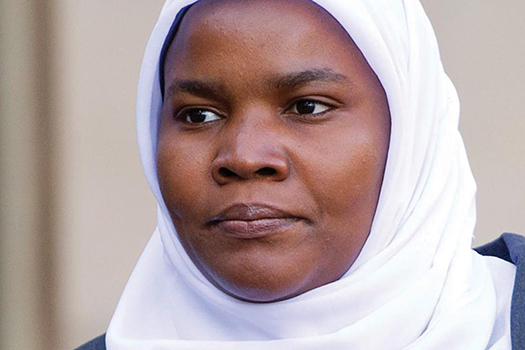Dr Hadiza Bawa-Garba, the junior doctor struck off after the GMC appealed its own tribunal, should be back in hospital treating sick children, the Court of Appeal heard today.
Dr Bawa-Garba, a junior doctor specialising in paediatrics, was struck off earlier this year when the Medical Practitioners Tribunal decision to let her continue practising was overturned by the High Court.
She is now challenging the ruling that she should be struck off, in front of three Court of Appeal judges.
Dr Bawa-Garba, 41, was on duty at Leicester Royal Infirmary 2011 when six-year-old Jack Adcock went into cardiac arrest due to sepsis. The doctor was later convicted of gross negligence manslaughter and received a suspended two-year jail sentence in November 2015 because of mistakes she made.
But the MPTS had found, in its initial decision to only suspend Dr Bawa-Garba, that her mistakes had been made in the context of wider system failures at the hospital.
Today’s hearing has heard Dr Bawa-Garba’s defence present the appeal case, with support from the BMA.
Representing Dr Bawa-Garba, James Laddie, QC said she should still be treating sick children in a ‘hospital somewhere in the Midlands’.
He said the NHS had lost a ‘young and talented’ paediatrician and claimed there were ‘systemic failings which contributed to the environment in which Dr Bawa-Garba came to make the mistakes which led us to this court’.
In a court room packed with doctors supporting Dr Bawa-Garba, Mr Laddie said the case had trickled down from medical circles, to ‘the man on the street’.
He accepted Dr Bawa-Garba’s actions ‘significantly contributed’, to Jack’s death but argued erasure was a ‘draconian’ measure claiming the public had united in ‘anger’ to support the doctor.
The parents of Jack were also sitting in the court as Mr Laddie said: ‘Public confidence in the medical profession demands, or at least permits, other (sanctions) than erasure to be applied to the appellant.’
In January of this year, Lord Justice Ouseley, sitting with Lord Justice Gross quashed the 12-month suspension imposed by the MPTS.
The judges felt the MPTS was wrong to consider the failings of the hospital as a whole, and had ignored the finding of the jury in the manslaughter case.
Jenni Richards, QC, representing the BMA, said: ‘The tribunal’s judgement was that suspending the appellant registrant would sufficiently satisfy public confidence.
‘The Divisional Court’s judgement was directly contrary – that public confidence necessitated erasure.
‘Those opposing conclusions as to what public confidence requires on the facts in this case give rise to two questions:
‘How does one undertake the assessment of maintaining public confidence in the profession, and whose role is it to undertake the assessment?
‘There is need for very considerable confidence about leaping to conclusions about what public confidence requires.’
Ms Richards said public confidence must relate to an ordinary, intelligent, well-informed citizen; that the tribunal has the right to all evidence whether it was shown to a jury or not; that the judgement about public confidence must be reached on the facts of an individual case with no presumptions; that insight, remediation or risk have an important role to play in what public confidence requires; that the MPTS must take into account wider public interest considerations and; that this is pre-eminently for the judgement of the tribunal.
Ivan Hare, QC, representing the GMC said: ‘The only conclusion one can draw by reading the MPT decision is it is clear that they regarded those systemic failings as reducing Doctor Bawa-Garba’s personal failings.
‘What the tribunal must have done in the emphasis it placed on the systemic failings is taking a different view from the Divisional Court.’
Mr Hare highlighted examples where surgeons who had made errors but were held to be highly talented could enjoy exceptional mitigating arguments.
However, he argued Dr Bawa-Garba did not qualify for this as she was not ‘a doctor who pleads guilty, who self-refers or who apologises’.
Mr Hare added: ‘It is not about satisfying a demand for blame and punishment- it is about something very different. It is about maintaining public confidence and standards in the profession.’
Dr Bawa-Garba had originally diagnosed the boy with gastroenteritis, a stomach bug.
The doctor failed to spot from blood tests that Jack was in shock or review chest X-rays that indicated he had the chest infection.
Following the case, which caused an uproar from the medical profession, the Government has announced its intention to strip the GMC of the power to appeal MPTS decisions. However the GMC has said it will continue until legislation changes.
The hearing continues.
Comments on this story have been disabled
Pulse October survey
Take our July 2025 survey to potentially win £1.000 worth of tokens














